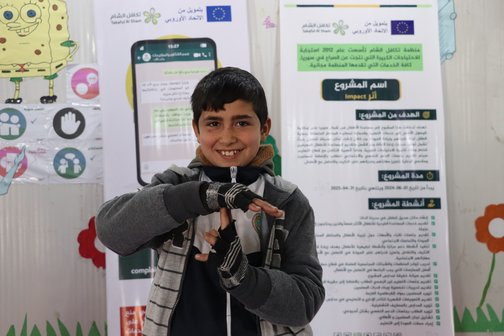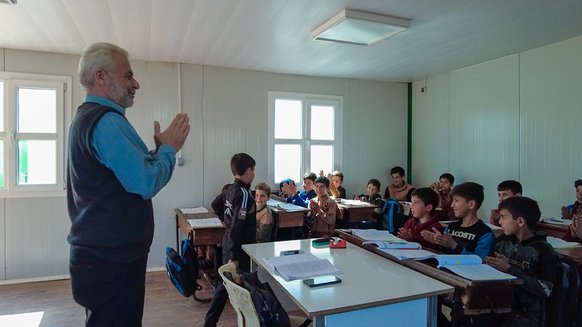Expression, Connection, and Confidence: How TeamUp Helped Blind Children in Syria Discover New Ways to Feel Joy
July 1, 2025
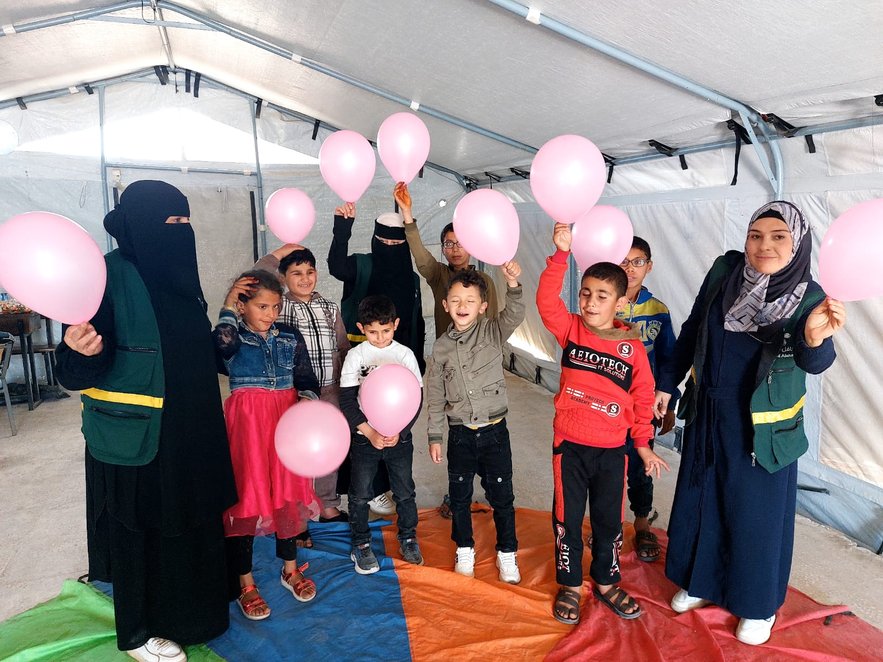
In early 2025, as part of the Building a Brighter Future: Education and Protection Services for Crisis-Affected Children in North-West Syria project funded by the European Union’s Directorate‑General for European Civil Protection and Humanitarian Aid (DG ECHO), 5 boys and 6 girls took part in a psychosocial support programme to help them to manage their emotions and grow in confidence.
The programme was run by War Child and our implementing partner organisation Takaful Al Sham.
Each group session drew from the TeamUp methodology and was reimagined to centre the children's experiences through sound, imagination, and presence. Facilitators led games, storytelling activities, and mindfulness exercises — all designed to help the children feel safe, heard, and empowered.
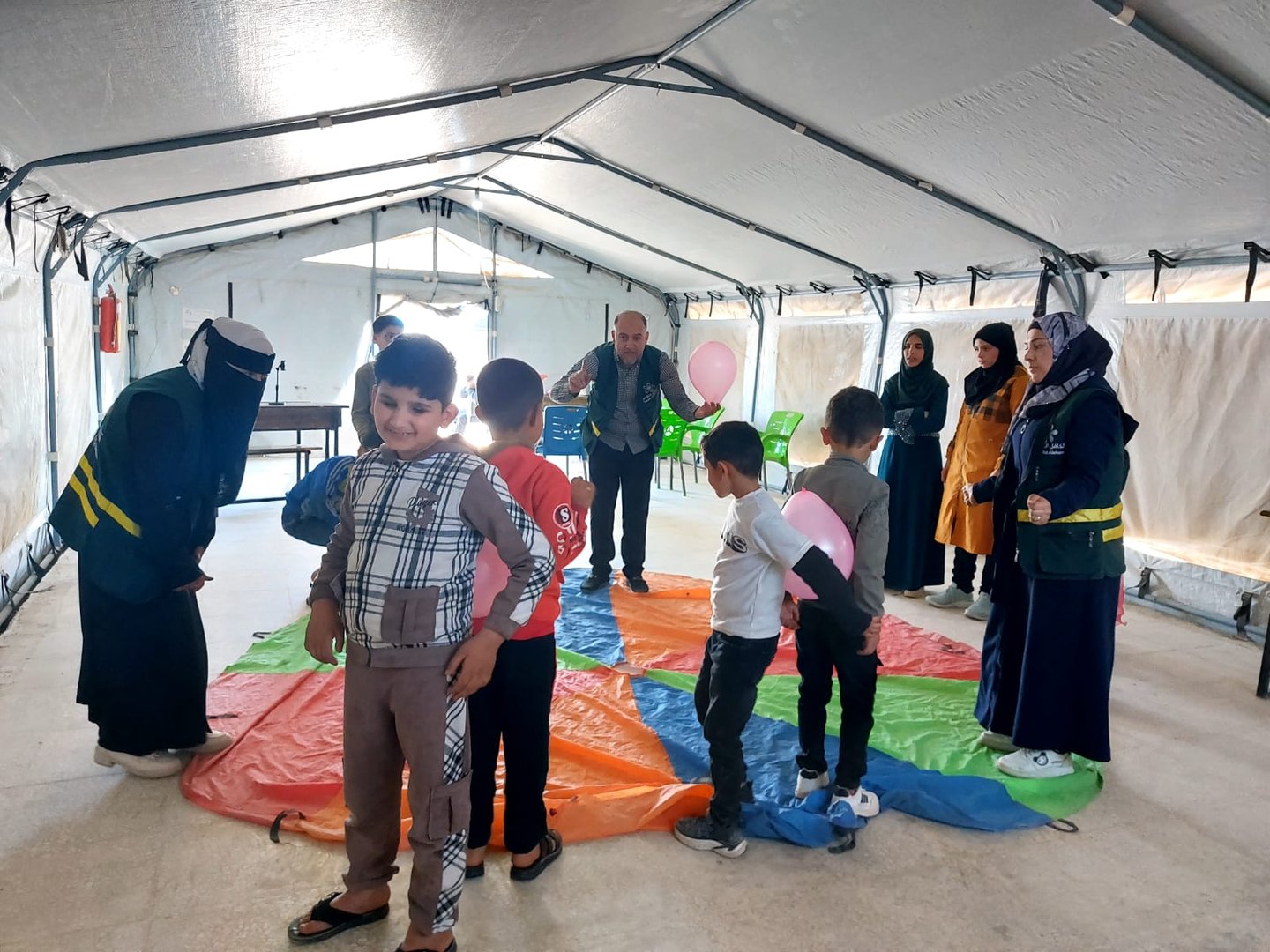
Children engaging in one of the activities at a TeamUp session
The sessions began with simple, imaginative activities to help the children feel safe and confident.
In the Hit the Target activity, children practiced focus and self-trust — skills they carried into other parts of their lives.
Activities like the Name Game and storytelling allowed them to learn about each other without sight, and encouraged mutual respect and real friendships.
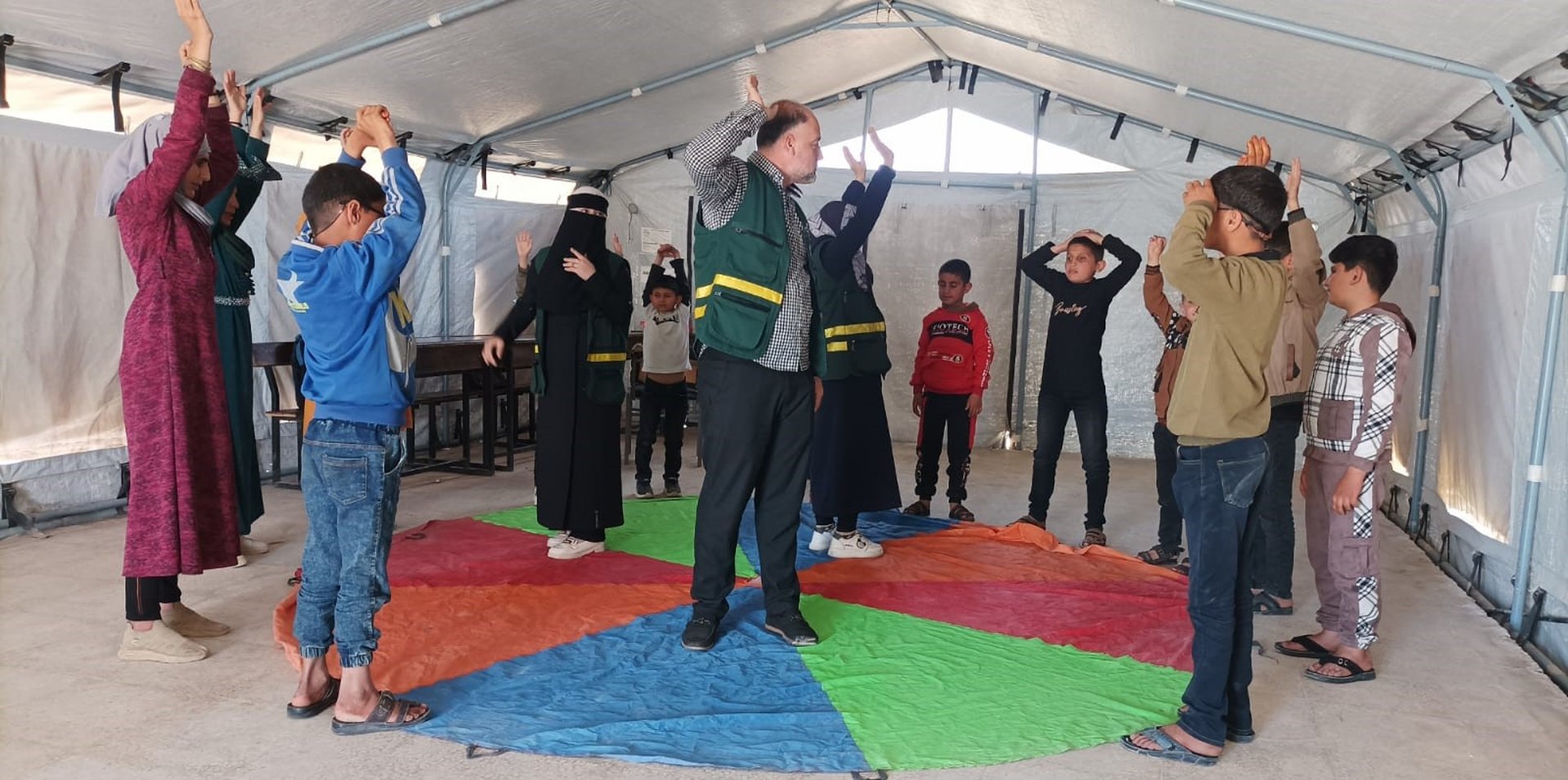
Children engaging in one of the activities at a TeamUp session
The children discovered what it meant to connect deeply with peers — not through sight, but through shared space, active listening, and laughter.
After each session, calming activities like Popcorn and Yoga Relaxation helped the children slow down, breathe, and tune into their emotions.
The facilitators — working with this group for the first time — adapted their approach to focus on listening and emotional presence, rather than visual cues.
Shifting language from “look at me” to “listen to me” was one of many thoughtful and intentional changes that helped create a space of trust and safety.
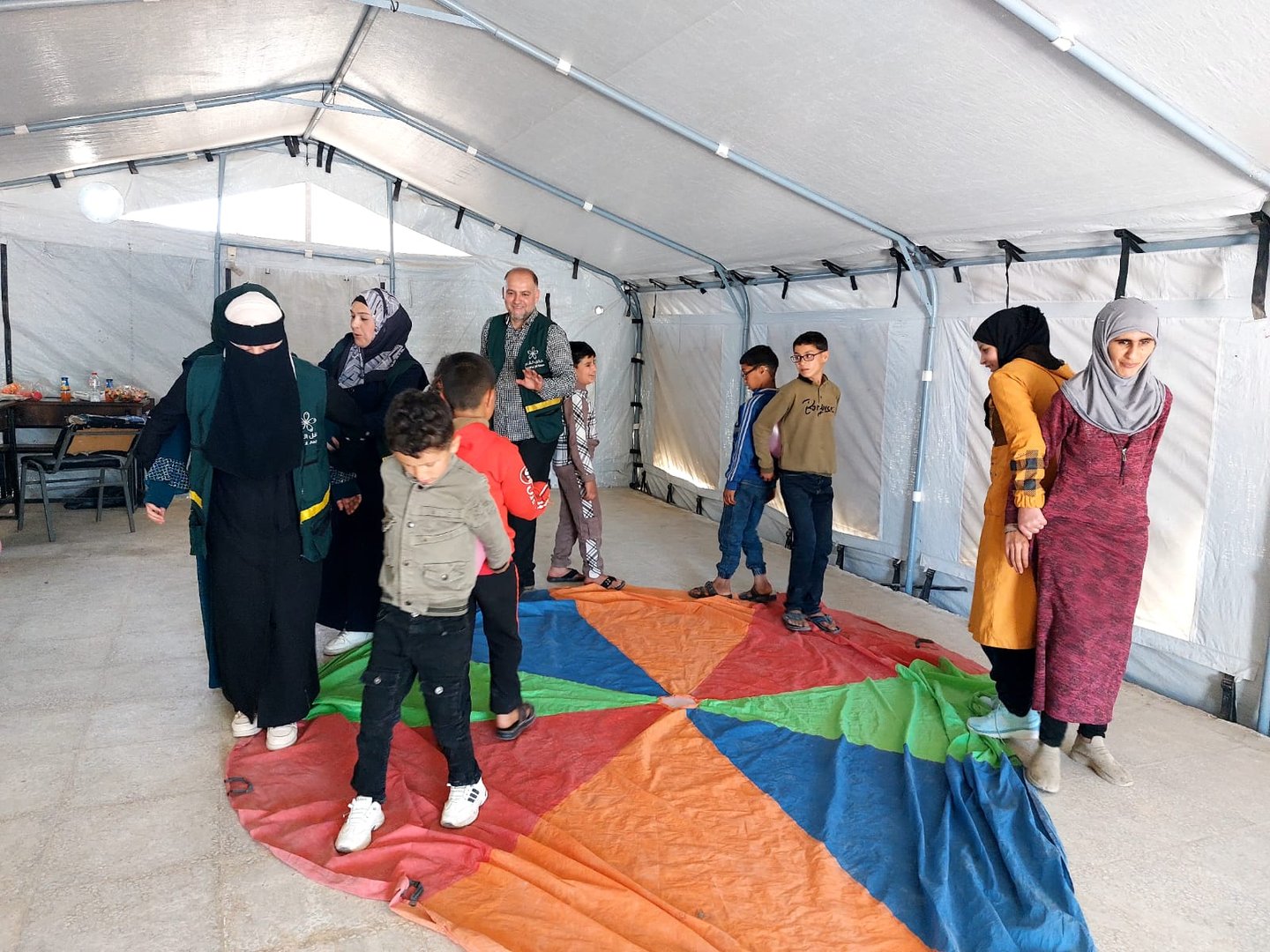
While the TeamUp methodology wasn’t originally developed for children with disabilities, we always aim to be inclusive and enable all children to join our activities. In this instance, the facilitators in Syria used flexible and creative strategies to make the TeamUp activities meaningful for vision impaired children, and the results were remarkable.
And the children’s transformation didn’t stop at the school gates. Caregivers also noticed real changes in their behaviour outside of the classroom.
This wasn't just a programme. It was a shift — a space where children could explore identity, resilience, and connection on their terms.
They led the way. We simply listened.
About TeamUp
TeamUp is a psychosocial support intervention developed by War Child, Save the Children and UNICEF Netherlands. The sessions allow children to relieve stress and tension in the body while creating a sense of security within themselves and others.
